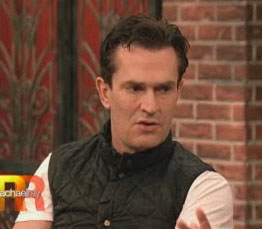I had an interesting... peculiar? Triduum, well, actually, all of Holy Week.
Morning Mass at the beginning of the week saw a celebrant who twice announced his choice of EP to us, with a criticism of their "convoluted English," of which he would "try to make the best."
Holy Thursday, no
mandatum, lots of back-ground instrumental music, fairly random song choices, (except for several different settings of Ubi Caritas,) and Christ born away for reposition in two stacks of ciboria that looked for all the world like a bento box.
Friday, efficiency was the name of the game, a celebrant who is already addressing the next communicant before the current one has possession of the host. (I was seated in a front row of chairs where either standing or kneeling would have put me very much in the way, so I couldn't help but notice the rhythm of the two processions.) Jam-packed church, less than an hour.
None of that "let us kneel, let us stand" nonsense for us at the intercessions, I think we say, IIRC; though there was a deacon, the priest just said everything straight through.
Were You There, a kind of random communion song, and an awful psalm, (which I could not "get" for the first three iterations.)
Saturday?
Glad you asked.
For the "Solemn" Vigil, fewer in attendance than for any weekday Mass in ordinary time.
No music ministers.
This is understandable, as they had already HAD a (presumably non-solemn,) "vigil" in broad daylight, for which I believe they used the Easter morning Mass.
No assigned young servers, an elderly gentleman, (the sacristan, i think,) took care of things, a non-singing deacon.
Three readings only, psalms spoken straight through by all, some confusion about order and the Gloria.
One supremely random hymn at cl0sing, (
Now Thank We..., or
Praise to the Lord, cant remember which.)
BUT...
The celebrant sang the unfamiliar, (new translation, ya know?) Exultet very nobly indeed, led and sang the gospel acclamation, (rising in pitch for each Alleluia, I have NEVER heard that done properly before,) and chanted the dismissal beautifully...
And he gave a stirring sermon that had to do with the women "making the effort" going to the tomb, when everything 'was over'; and how we're all old, and try to pretend we're past all that mission stuff.... I'm not giving the right impression of it, it was wonderful.
I feel, somehow, (I've been watching too many period pieces...) like a doughboy laid up by an inconsequential injury, who is guilty about enjoying the fact that no one could possibly
expect him to return to "work."
I mean really, I can't, can I?
And even if I could, there's no place to do it, right?
Except there is, there's always a way to contribute.
I have to find a way to get back into it, (trying to avoid saying, "get back into
combat.")
And although I have no confidence that matters will improve locally, things are looking genuinely hopeful in the wide world, are they not?
On one
liturgy forum, a music director who, judging from her terminology, would lean toward... what's the PC way we in the music and liturgy trenches have chosen to differentiate now that we know liberal/conservative, progressive/traditional, orthopractical/ephemeraphilic aren't helpful? I digress... anyway, a music director who talks about "ensembles", "gathering songs" and "contemporary arrangements" has this to say:
"I moved the ensemble from singing a gathering song to a contemporary arrangement of the introit text [including] all the alleluias–even when matched with other texts that initially seemed reflective rather than triumphal. The result for us has been the frequent use of “alleluia” throughout the season (always in the entrance song, frequently in a communion or offertory song)"But on another we find
this snarky, thinly-veiled insult:
"Beautiful selections ... but as for me, I would not want all that Latin every week. I'm guessing your parishioners travel for this concert style and are not all locals. To each his/her own style of worship I guess."
Oh, and this programming condemned as "concert style" , and adjudged to too much Latin"?
It consists of English congregational hymns in place the entrance and offertory antiphons, an English responsorial psalm, congregation-friendly Latin chant Gloria and memorial acclamation, an English, (and Hebrew, of course,) a Gospel/alleluia from Respond and Acclaim, and a rousing English-language congregational recessional/sendingforth hymn.






